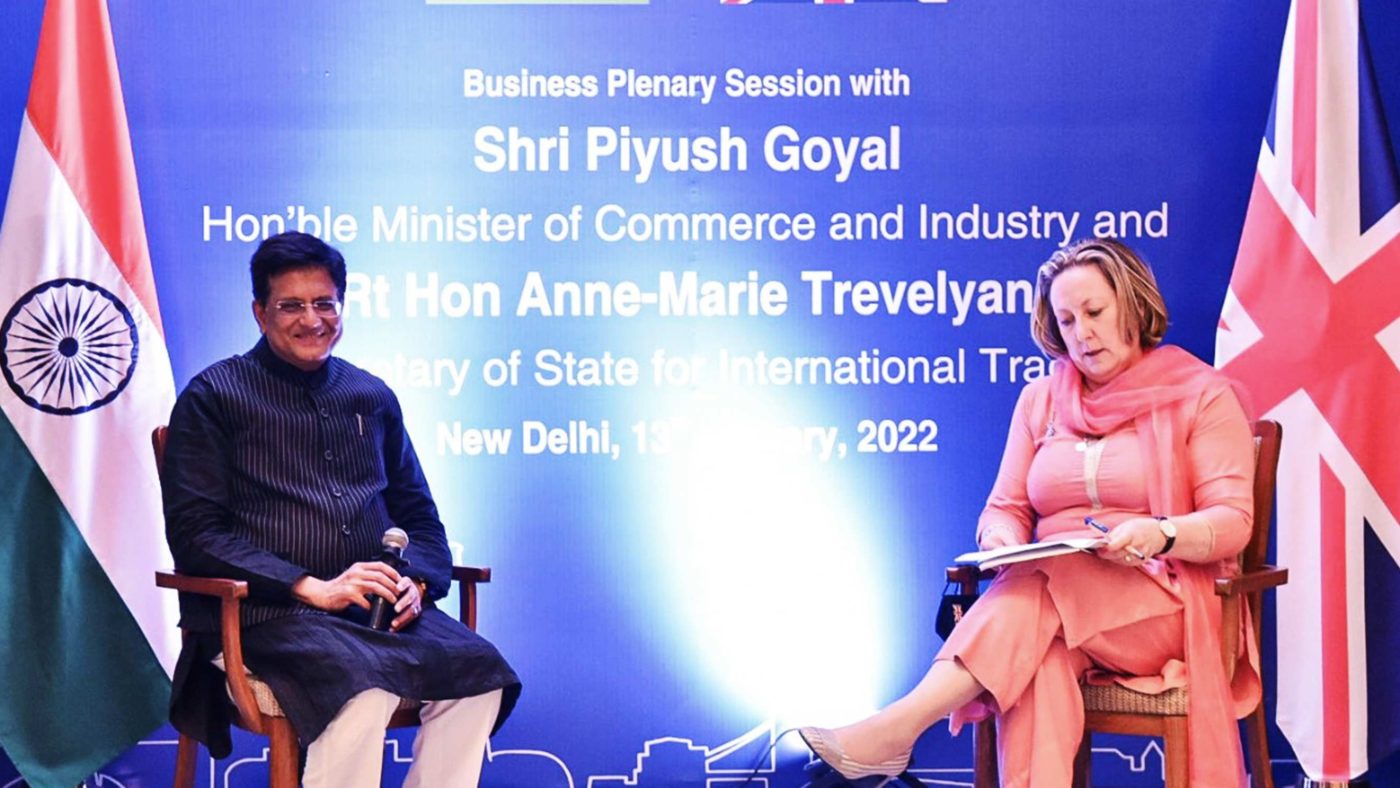Last week the Government announced the launch of negotiations for a free trade agreement between the UK and India. If we manage to strike such a deal with India then it will be highly significant to Britain, both economically and in terms of diplomacy.
Let’s start with the economic benefits. The UK already does quite a lot of trade with India, totalling around £23 billion each year. Unfortunately, trading with India is not as simple as it could be, with a lot of complicated regulations which British firms have to adhere to if they wish to do business and sky-high tariffs on goods. As I pointed out on this site last week, high tariffs on most goods are thankfully a thing of the past – sadly, India is the exception that proves the rule.
This means that a free trade deal which lowers or removes tariffs could represent a real boost to British businesses. For example, the tariff on Scotch whisky is currently 150% and on cars it’s 125%. Slashing those rates means cheaper goods for India’s billion-plus consumers, as well as more jobs and higher wages here in the UK. The same is true for the pharmaceutical and aerospace industries, which also face high tariffs.
But it’s not all about the tariffs. There are many other costly and time-consuming barriers to trade, such as rules of origin requirements and customs procedures, which a free trade deal would hopefully alleviate.
Then there are services. The rules which UK businesses currently have to deal with date back to the 90s and, while there have been huge technological advances since, these rules have not really been updated – much to the chagrin of our world-leading services businesses.
It’s also encouraging to see the UK’s commitment to including a digital chapter in the FTA. Digital trade is often overlooked but things such as the free flow of data, the protection of encryption technologies, and the ban on data localisation are vitally important.
And though it’s tempting to think of trade agreements only in terms of exports, a deal with India has the potential to increase imports, which not only give British consumers more choice and lower prices, but also incentivise productivity gains for domestic producers.
There are sound diplomatic reasons to want a deal too. For one thing, it would show the UK is capable of making agreements with a major, fast-growing economy. But, coupled with the UK’s intention to join CPTPP, it would also underline a strategic tilt towards the Asia-Pacific region, offering a ballast against Chinese dominance of the region.
That all sounds terrific, but actually striking a meaningful deal will certainly be a tall order.
Despite liberalising its economy over the past few decades, India remains quite closed off in many ways. The high tariffs and outdated rules are not there by accident, but to protect its industries from foreign competition. That makes it highly unlikely that there will be any meaningful liberalisation in the most politically sensitive sectors, such as agriculture.
Other countries and trade blocs have run into the same problems. Australia has been trying to reach agreement for a decade, while the EU has also had very little success over the past few years. India has also withdrawn from RCEP (a trade agreement between several Asia-Pacific nations).
Nevertheless, we shouldn’t be too pessimistic. The fact that negotiations are starting should be seen that both sides see that there is serious intent on both sides, not least from the Trade Secretary Anne-Marie Trevelyan and her predecessor, Liz Truss. Having worked with our trade negotiators I can confirm that they are world-class and more than capable of securing even a tricky deal such as this one.
It’s also worth dispelling a myth that is being peddled about immigration. While it is true that the Indian government does tend to insist that there are more generous visa provisions for its citizens, this is not in any way akin to freedom of movement, as some people on social media seem to imagine.
In any case, welcoming talented, hard-working and entrepreneurial Indians to work in this country is not an imposition, but an opportunity. It should also, in my view, form part of a broader effort to make travel between our Commonwealth allies easier, as part of a ‘CANZUK Plus’ model.
Taken together, the benefits of a trade deal with India are clear and well worth working hard for. Be under no illusions though, even with all the good will in the world, securing such an agreement will be an uphill task.
Click here to subscribe to our daily briefing – the best pieces from CapX and across the web.
CapX depends on the generosity of its readers. If you value what we do, please consider making a donation.


